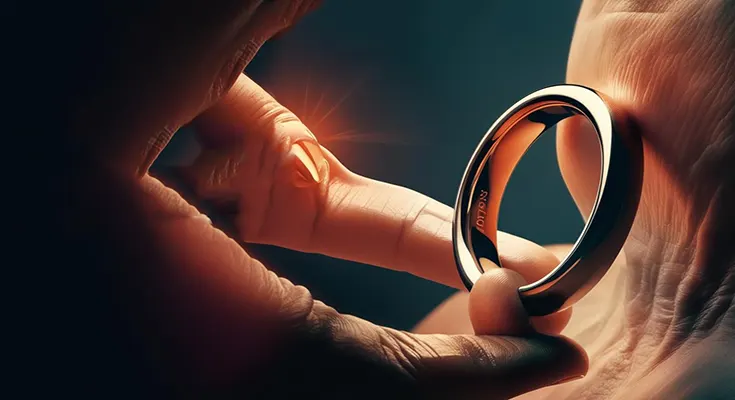Engagement rings have long been symbols of love, commitment, and unity between two individuals. However, some rings, particularly royal engagement rings, carry a much deeper significance beyond their immediate romantic associations. The symbolism of such a ring can affect not only the person wearing it but also influence their mental health and emotional well-being. The royal ring, steeped in history and tradition, holds a unique power to uplift the mind and create a positive mindset.
At its core, the engagement ring represents a deep bond between two people, a promise of shared futures and mutual trust. But when it comes to royal engagement rings, the impact can be far greater. These rings are not just pieces of jewelry; they are potent symbols of legacy, duty, and continuity. Royals are often expected to set examples for their citizens, embodying qualities such as strength, resilience, and loyalty. As a result, wearing a royal engagement ring can serve as a constant reminder of these values, instilling confidence and a sense of purpose in the wearer. This connection to a larger tradition can positively influence an individual’s mental health by promoting a sense of responsibility and belonging.
In many cases, royal engagement rings are chosen to reflect the character and legacy of the royal family itself. For example, Princess Diana’s engagement ring, which now belongs to Kate Middleton, is not just a beautiful piece of jewelry but a symbol of resilience, compassion, and public service. For those who wear or even admire such rings, these qualities may translate into feelings of empowerment and strength. This can have a profound impact on mental well-being, as individuals who feel connected to something larger than themselves often experience increased self-worth and motivation.
The idea of continuity and tradition can also play a significant role in mental health. In a fast-paced, ever-changing world, the symbol of a royal engagement ring can represent stability and permanence. When an individual faces challenges or stressful situations, the presence of such a symbol may act as a source of comfort, reminding them of their own resilience and the enduring power of love and commitment. This reassurance can be a powerful tool for improving mental health, providing a mental anchor during times of uncertainty.
Moreover, the association of royal engagement rings with happy unions and long-lasting love can have an uplifting effect on the psyche. The sheer beauty and rarity of these rings, often featuring large gemstones like diamonds, can elicit feelings of admiration and joy, which contribute to an individual’s emotional well-being. When people see these rings, they may not only think of the royal couple’s love story but also the hope and possibility that they represent for their own lives. This positive reinforcement can help improve outlook and reduce feelings of stress or anxiety.
There is also an element of self-worth associated with wearing such a prestigious symbol. Individuals who have the privilege of owning or wearing a royal engagement ring may feel a greater sense of value, both in terms of their personal relationships and in the broader social context. This can result in enhanced self-esteem and a stronger mental outlook. Furthermore, the idea of belonging to an exclusive group with historical significance can foster feelings of pride and inner strength, which are vital components of mental health.
Ultimately, the power of positive symbolism cannot be underestimated. The royal engagement ring, with its deep emotional and cultural resonance, offers more than just beauty; it provides a psychological benefit to those who wear it or are inspired by it. Whether as a personal reminder of love, legacy, or strength, the royal ring’s impact on mental health underscores the profound influence of symbolism in our lives. It is a tangible representation of enduring values, encouraging individuals to embrace positivity, resilience, and emotional well-being.





